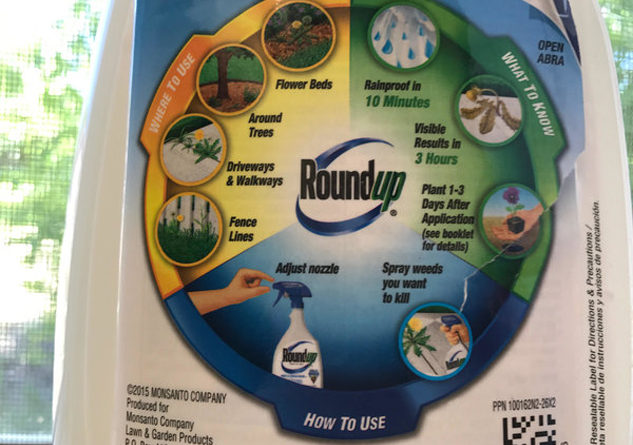Suzanne Potter
California News Service
SACRAMENTO, Calif. – The main ingredient in Roundup, the most commonly used weed killer in the world, has been declared a carcinogen by the state of California.
The state Office of Environmental Health Hazard Assessment on Monday said glyphosate will be added to the state’s list of cancer-causing chemicals on July 7. The move comes after a 2015 ruling by the International Agency for Research on Cancer, part of the World Health Organization, that it is “probably carcinogenic.”
Bill Allayaud, California director of government affairs for the nonprofit Environmental Working Group in California, said Roundup is used in homes, on roadsides and on farms just about everywhere.
“Glyphosate is so commonly used, it’s showing up in women’s breast milk and all over the world in animals,” he said. “So, it’s high time people be warned about this chemical, and this is a good step towards letting people know, ‘Proceed with caution when you’re using Roundup.’ ”
Allayaud advised avoiding Roundup altogether for home use. The maker, Monsanto, tried and failed to block the listing in the courts, arguing that its studies show the weed killer is safe when used as directed. The company is appealing the ruling. California’s Proposition 65, passed in 1986, requires that chemicals on the state list of carcinogens carry warning labels either on the product or at the point of sale.
Randy Jurado Ertll, executive director of the California Latino Environmental Advocacy Network, praised the move, but said he worries about the health of farmworkers who apply the herbicide and the rural communities upwind of the fields.
“It’s usually the low-income minority communities, especially working-class Latino communities, that bear the brunt of pesticide contamination,” he said. “It’s usually poor farmworkers that have to breathe in or use pollutants.”
It is extremely rare for chemicals to be banned outright, but in the past the state has placed limits on the amount and timing of spraying for chemicals it deems to be dangerous.






